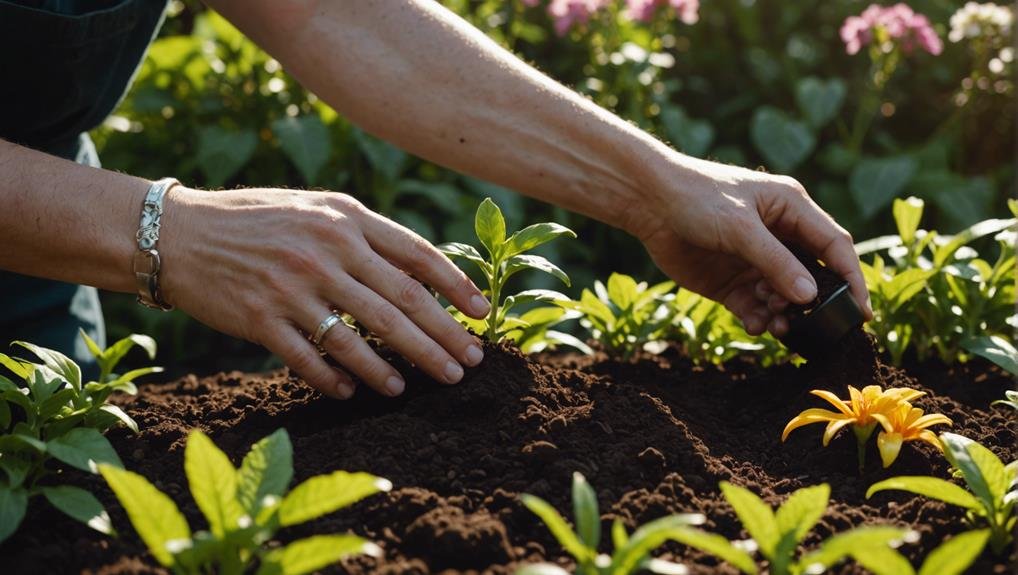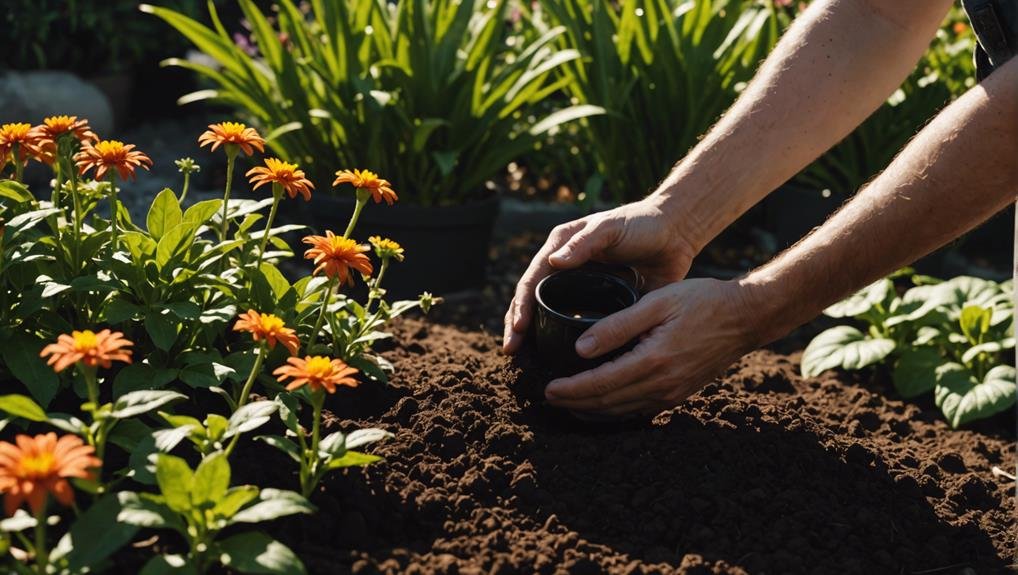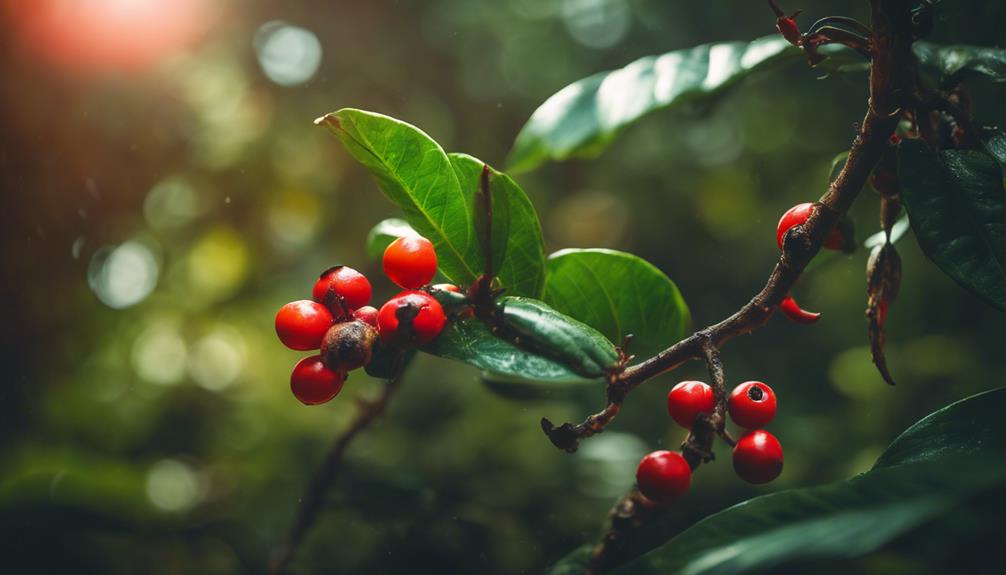Coffee grounds offer a range of benefits for soil health and plant growth. Blueberries particularly thrive in acidic soil, making them a perfect match for coffee grounds that help maintain soil acidity and provide essential nutrients like nitrogen, copper, zinc, and iron.
These grounds can improve soil structure, enhance moisture retention, and even act as mild pest deterrents when used correctly. It's important to use them sparingly to avoid over-acidifying the soil and causing harm to the plants.
If you're curious about other ways to utilize coffee grounds in your garden, many plants can benefit from their unique properties.
Benefits for Blueberries
Blueberries benefit greatly from the application of coffee grounds because they prefer acidic soil conditions. These nutrient-rich berries thrive in soil with a pH level between 4.5 and 5.5. Coffee grounds help maintain this acidity, creating an ideal environment for blueberry growth.
Additionally, coffee grounds are a rich source of nitrogen, crucial for the development of healthy plants. They also provide essential trace minerals like copper, zinc, and iron, enhancing the overall nutrient content of the soil. Using coffee grounds as a natural amendment can improve soil structure, increase aeration, and even act as a mild pest deterrent, leading to vigorous blueberry bushes and a bountiful fruit harvest.
Using Coffee Grounds
Utilizing coffee grounds for blueberries requires a careful approach for maximum benefits. Begin by incorporating coffee grounds into the soil surrounding blueberry plants, ensuring thorough mixing to avoid clumping.
Composting the grounds beforehand enriches the soil with essential nutrients. Another effective method is blending coffee grounds with mulch to balance soil acidity and enhance moisture retention.
To prevent root burn, refrain from placing coffee grounds too close to the plant trunk. Limit direct application of coffee grounds to blueberry bushes to once every two to three months to avoid overuse and ensure optimal benefits.
Avoiding Overuse

Maintaining a balanced approach in using coffee grounds is essential to avoid potential harm to blueberry plants.
While coffee grounds offer various benefits, excessive application can result in negative effects such as yellowing leaves and decreased plant firmness. Overusing coffee grounds may also introduce harmful chemicals into the soil, potentially causing harm to the plants.
To prevent these issues, it is recommended to limit the direct application of coffee grounds to blueberry bushes to once every two to three months. Furthermore, it is best to refrain from adding coffee grounds during the winter months when plants are less active and more vulnerable to damage.
Other Garden Uses
Coffee grounds are a valuable resource for gardeners, offering nutritional benefits and acidity that enhance soil quality and plant health. They can be used as an effective mulch to retain moisture and suppress weeds, while also enriching compost with essential nutrients like nitrogen, copper, and zinc.
The abrasive texture of coffee grounds can help deter pests like slugs and snails. Additionally, gardeners can use coffee grounds as a natural dye to subtly change the color of pH-sensitive flowers.
Plants to Avoid

Certain plants, such as tomatoes, lavender, and sunflowers, are sensitive to the acidity and moisture retention caused by using coffee grounds as a soil amendment.
The high acidity of coffee grounds can hinder the growth of these plants, leading to poor health.
Cacti, succulents, rosemary, and broccoli also struggle in soil amended with coffee grounds due to the increased acidity and nitrogen content, which can disrupt their nutrient uptake.
It is essential to avoid using coffee grounds with plants that thrive in neutral or alkaline soil conditions with low moisture levels.
Conclusion
In essence, coffee grounds are a gardener's secret weapon, offering numerous benefits to acid-loving plants such as blueberries, rhododendrons, and hollies. They enrich the soil with essential nutrients and act as a natural pesticide.
However, it's important to use them in moderation to avoid harming plant health. By understanding the specific needs of different plants, gardeners can effectively utilize coffee grounds, turning kitchen waste into a valuable resource for gardening.












